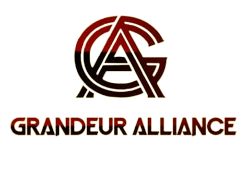Stocks & Bonds Investment
Stocks
Stocks are essentially ownership stakes in corporations that give investors an opportunity to participate in a company's growth. The profitability of the investment depends almost entirely on fluctuations in stock prices, which are fundamentally tied to the growth and profitability of the company. Stocks have the ability to generate hugh returns. Consequently, investors who are willing to take on greater risks in exchange for the potential to benefit from rising stock prices would be better off choosing stocks.
A bond is a fixed income instrument that represents a loan made by investors (known as "creditors" or "debtholders") to borrowers, which are typically corporations or governmental entities. Also known as coupons, bonds are characterized by the fact that the ultimate payouts are guaranteed by the borrower. With these investments, there is a concrete maturity date, upon which the principal is repaid to investors, along with interest payments attached to the interest rate that existed at the onset of the loan. Bonds are used by grandeuralliance.com to finance a multitude of projects and operations. Bonds attract a subset of fixed income investors that enjoy the prospect of higher yields.
A bond is a fixed income instrument that represents a loan made by investors (known as "creditors" or "debtholders") to borrowers, which are typically corporations or governmental entities. Also known as coupons, bonds are characterized by the fact that the ultimate payouts are guaranteed by the borrower. With these investments, there is a concrete maturity date, upon which the principal is repaid to investors, along with interest payments attached to the interest rate that existed at the onset of the loan. Bonds are used by grandeuralliance.com to finance a multitude of projects and operations. Bonds attract a subset of fixed income investors that enjoy the prospect of higher yields.
- * Growth stocks are expected to outperform the overall market over time because of their future potential.
- * Value stocks are thought to trade below what they are really worth and will thus theoretically provide a superior return.
- * Stocks offer the potential for higher returns than bonds but also come with higher risks.
- * Bonds generally offer fairly reliable returns and are better suited for risk-averse investors.
- * For most investors, diversifying portfolios with a combination of stocks and bonds is the best path towards achieving risk-mitigated investment returns.

